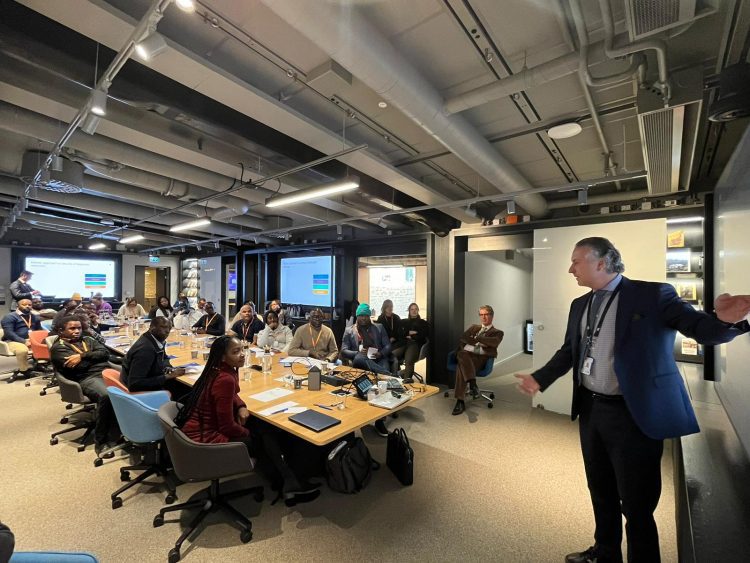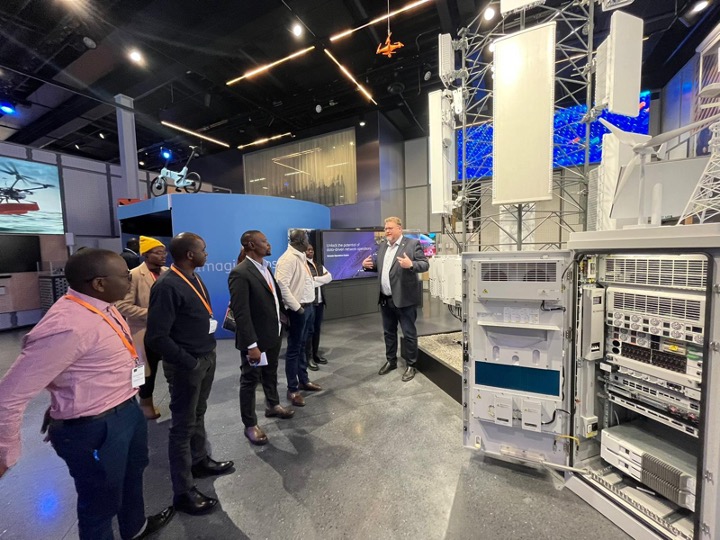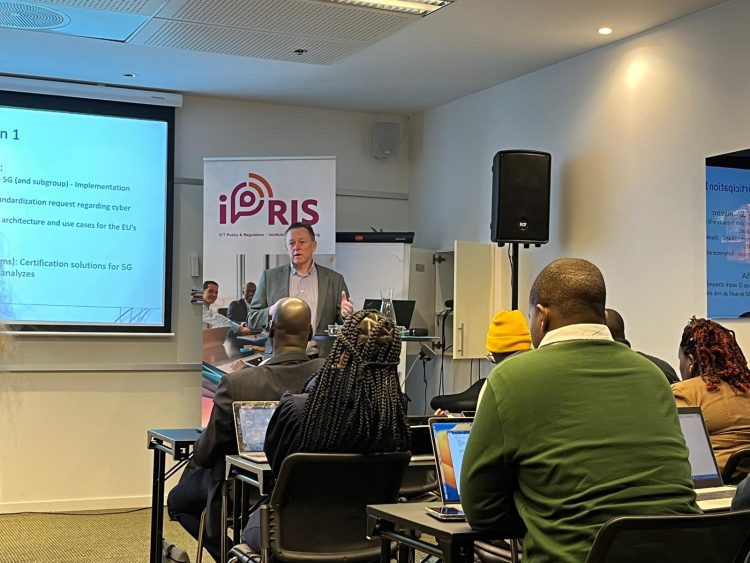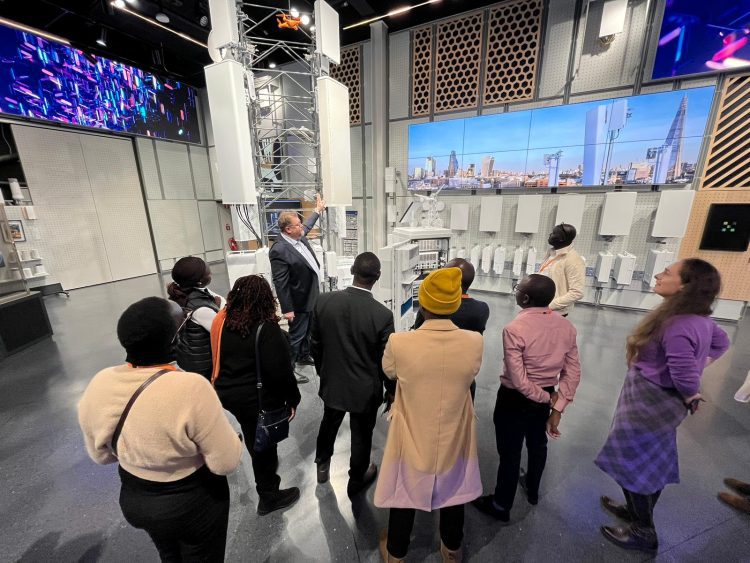[et_pb_section fb_built="1" admin_label="section" _builder_version="4.16" global_colors_info="{}"][et_pb_row admin_label="row" _builder_version="4.16" background_size="initial" background_position="top_left" background_repeat="repeat" global_colors_info="{}"][et_pb_column type="4_4" _builder_version="4.16" custom_padding="|||" global_colors_info="{}" custom_padding__hover="|||"][et_pb_text admin_label="Text" _builder_version="4.16" background_size="initial" background_position="top_left" background_repeat="repeat" global_colors_info="{}"]
The ICT Policy & Regulation – Institutional Strengthening (iPRIS) project heralds a new era of Information and Communication Technology (ICT) advancement in Sub-Saharan Africa (SSA). From 2023 to 2028 and generously funded by the European Union (EU), Sweden, and Luxembourg, iPRIS is a transformative initiative building on the success of Sweden's preceding program from 2017 to 2022.
To participate in the iPRIS project, a National Regulatory Authority (NRA) needs to be a member of one of the following regional regulatory organisations: Assemblée des régulateurs télécoms de l’Afrique centrale (ARTAC), The Communication Regulators’ Association of Southern Africa (CRASA), The East African Communications Organisation (EACO), and The West African Telecommunication Regulators Assembly (WATRA). Additionally, the NRA must meet four essential criteria for consideration: commit to achieving gender balance among nominated staff for the change project, iPRIS will ensure representation from at least two African regions in each capacity-building round, be prepared for long-term engagement to achieve institutional capacity changes and have delegates with the professional mandate to lead institutional change. It is important also to consider that no more than seven countries can be included in each training round.
A Strategic Progression

iPRIS represents a strategic progression to bolster the capacities of NRAs and regional regulatory organisations across Sub-Saharan Africa, primarily focusing on developing and implementing regulatory frameworks, especially in the telecommunications sector.
Core Objectives
The core objectives of iPRIS are ambitious and far-reaching:
Multi-Faceted Approach 
iPRIS adopts a comprehensive and multi-faceted approach to achieve its objectives:
Participating Countries
In the first round (2023A), iPRIS invites participation from countries associated with three regional regulatory organisations: WATRA, CRASA, and EACO. These countries collaborate to strengthen ICT policy and regulation in their respective regions.
NRAs at the Helm
At the heart of iPRIS are the NRAs from Kenya, Namibia, Eswatini, Sierra Leone, Nigeria, South Sudan, and Zambia. These visionary bodies are leading change initiatives that address crucial issues such as optic fibre infrastructure, rural ICT development, cybersecurity, spectrum management, and competition-related matters.
The following credentials, experience, or mandates are necessary for NRA workers to participate in the iPRIS project:
These qualifications and mandates are required for participation in the iPRIS project, guaranteeing that the selected personnel can effectively contribute to the project's aims and outcomes.
Collaborative Leadership

The iPRIS project is led by a dedicated team of experts from Sweden, including organisations such as SPIDER and PTS. The collaboration extends to the private sector with the involvement of companies such as Ericsson, Tele2, and STOKAB.
Shaping a Connected Future

Embarking on this transformative journey, the NRAs are at the forefront of shaping a connected, inclusive, and digitally empowered future for Sub-Saharan Africa. The iPRIS project aligns with global efforts to bridge the digital divide, emphasising robust regulatory frameworks' pivotal role in propelling the region into the digital age.
“Africa has the opportunity to learn from experts by jumping to advance level, without necessarily starting from scratch concerning policies, procedures and resources.”- David Deng, National Communication Authority of South Sudan (NCA)
About iPRIS
The ICT Policy & Regulation – Institutional Strengthening (iPRIS) project is a capacity-building initiative funded by the European Union, Sweden, and Luxembourg. It aims to enhance the capabilities of National Regulatory Authorities and regional regulatory organisations in Sub-Saharan Africa, focusing on developing and implementing regulatory frameworks in the telecommunications sector.
"iPRIS really provided us with an opportunity to meet fellow Africans, and this is something we will take with us." - Olivia Iyaloo M'kwaira, CRAN Namibia
[/et_pb_text][/et_pb_column][/et_pb_row][/et_pb_section]
Borgarfjordsgatan 12, Kista,SWEDEN
Postal Address: Stockholm University, Department of Computer and Systems Sciences/DSV, SPIDER, P.O Box 1073, SE-164 25 Kista, Sweden
Copyright © 2025 iPRIS. All rights reserved.